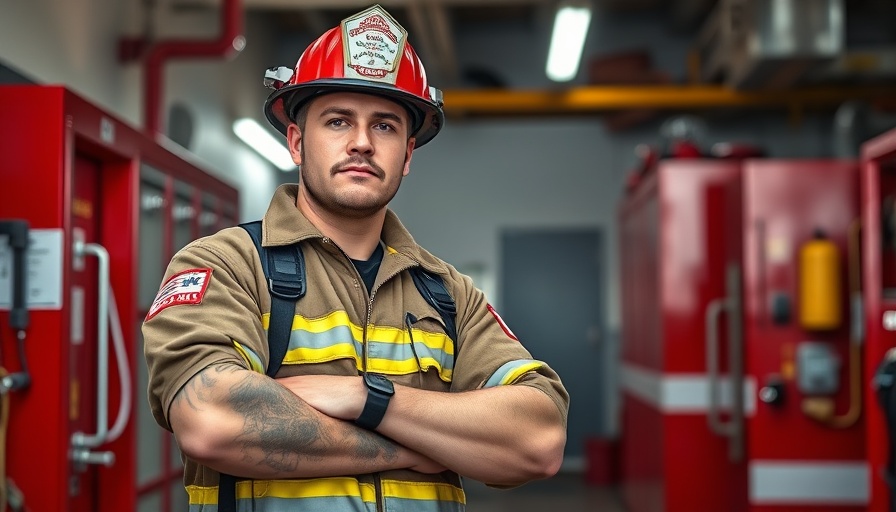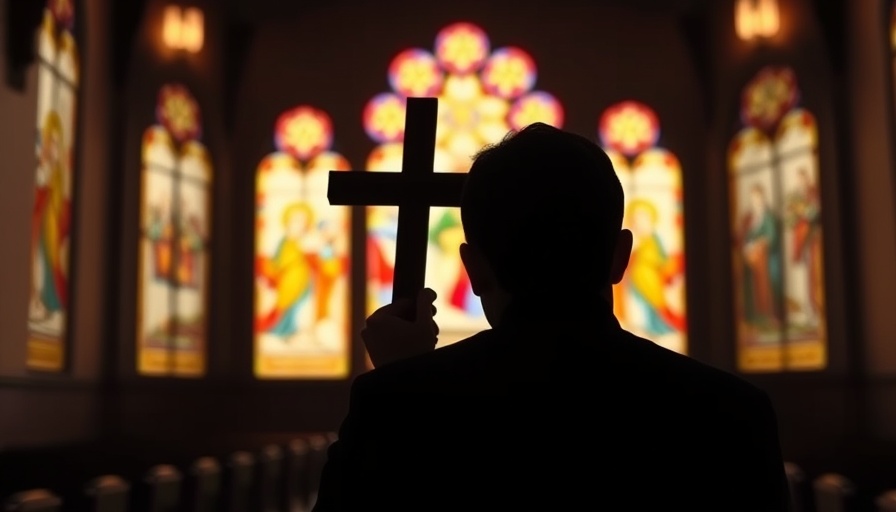
Heroic Intervention at 30,000 Feet: A Story of Life-Saving Action
In a remarkable instance that showcases the importance of quick thinking and training, Captain Bryan Ballard, a federal firefighter stationed at NSA Portsmouth, took decisive action during a flight when a fellow passenger suffered a cardiac arrest. His life-saving intervention not only highlighted the critical role of trained professionals in emergency situations but also demonstrated how everyday individuals can rise to the occasion when lives depend on it.
Understanding Cardiac Arrest: The Stakes of Time
Cardiac arrest, a condition where the heart suddenly stops beating, requires immediate medical attention. Survival rates drop significantly with each passing minute without intervention. In Ballard's case, his experience as a firefighter and familiarity with CPR (Cardiopulmonary Resuscitation) proved vital. According to the American Heart Association, effective CPR performed immediately can double or even triple chances of survival following cardiac arrest.
Emergency Preparedness On Board: The Importance of Training
This incident also reflects a larger conversation about emergency preparedness, particularly in environments where medical assistance may not be readily available. The Federal Aviation Administration (FAA) notes that airlines are required to be prepared for medical emergencies, yet having a trained professional on board can make all the difference. Ballard not only acted promptly but also encouraged another passenger—who also had CPR training—to assist him, showcasing the power of community action during crises.
Keeping Calm Under Pressure: Ballard's Personal Experience
For Captain Ballard, this incident was both surreal and instinctive. Amidst the chaos of passengers in distress, he remained composed. "I heard the flight attendant come over the intercom, and I could tell some passengers were kind of frantic and in distress," he shared. Maintaining calm is crucial in emergencies, a trait that Ballard exemplified during those critical moments.
Community and Connection: The Importance of Humanizing Emergency Stories
For older adults, knowing that qualified individuals like Ballard are part of the community is reassuring. Such stories remind us that heroes often operate in everyday scenarios, and a quick response can lead to unprecedented outcomes. Captain Ballard's action not only saved a life, but served as an inspiration for many, emphasizing that anyone could be called upon to act in an emergency.
Honoring Heroes: Recognition and the Value of Public Servants
In recognition of his actions, Captain Ballard received accolades from the Tidewater Federal Firefighters Local F-25, symbolizing the community’s appreciation for his quick thinking and willingness to help a stranger. Stories like these are essential, reminding us to value our local heroes—firefighters, paramedics, and all emergency responders who dedicate their lives to saving others. It highlights the often-unseen effort of public servants who work tirelessly to keep their communities safe.
Conclusion: Prepare and Advocate for Training
This event emphasizes a crucial message: understanding CPR can empower individuals to act decisively in emergencies. Local community centers and organizations in Louisiana offer CPR training sessions that can prepare people of all ages to respond effectively in crises. By encouraging older adults to learn lifesaving skills, we can create a community more prepared to face emergencies together.
In light of Captain Ballard's heroic actions, consider getting involved or advocating for community-first aid training, ensuring that everyone—especially seniors—are ready to respond in emergencies that might affect them or their loved ones.
 Add Row
Add Row  Add
Add 



Write A Comment